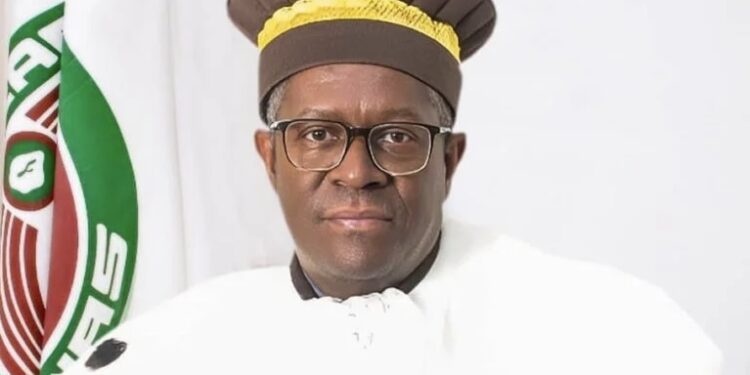ECOWAS Court president Ricardo Gonçalves has appealed to ECOWAS member states to fully recognise the court’s authority and cooperate with it in enforcing the court’s judgments.
He made the appeal while declaring open ECOWAS Court‘s 2025/2026 Legal Year celebration, with the theme ‘ECOWAS Court and International Law: Expanding Access and Navigating Contemporary Challenges’, on Thursday in Abuja.
The court’s president, while noting that only about 30 per cent of the court’s judgments had been enforced, decried that the non-enforcement of judgments was the court’s most significant challenge.
“Some of the difficulties that we have encountered relating to the jurisdiction of the court include the persistence of non-enforcement of the court’s judgments. Now, you see, our processes should not just end in presentation of an application to the court and a verdict delivered, but all this must translate into not just the text that regulates. Indeed, what credibility would a court have if their decisions were not enforced? It is only on this condition that the citizens of the community and the general public will continue to believe in this court,” he said.
According to him, community citizens, who sometimes come from far and wide to seek justice, deserve to see decisions enforced in good faith and in a timely manner.
Mr Gonçalves, therefore, appealed to the administration of the community institutions to continue honouring their commitments by fully recognising the authority of the court and enforcing its decisions.
He said that, notwithstanding the court’s other challenges, such as financial constraints, like other community institutions, it recorded remarkable milestones the previous year.
The president explained that over the past year, the court registered 34 new cases, held a total of 79 court sessions, and delivered 54 judgments, with 112 cases pending.
Another milestone, he said, was the court’s adoption of an innovative electronic case management system and the holding of secure virtual hearings, which strengthen access to justice and reduce geographical and logistical constraints.
He stated that the court also hosted a maiden edition of its Moot Court competition for university law students in Nigeria, which would later be expanded to other institutions across the sub-region.
Gonçalves stressed that, going forward, one priority guiding the court’s action in the new legal year would be the expansion of access to justice through the implementation of an electronic case management system.
The second, he said, would be to increase collaboration with national courts, professional associations, and civil society organisations to address challenges and expand access to justice.
“Efficiency, transparency, and accountability will remain at the heart of our concerns,” he added.
(NAN)






